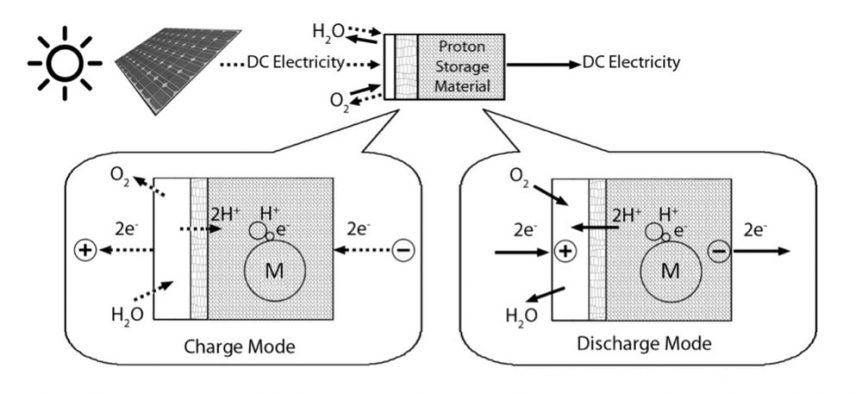Fuel Cell, Flow Battery Professor John Andrews of RMIT University, Melbourne, Australia, has announced a “proton battery” that combines features of fuel cells and flow batteries. The first rechargeable battery of its type, it is, as reported in Green Car Congress, “Environmentally friendly, and has the potential, with further development, to store more energy than currently-available lithium ion batteries.” Interestingly, the battery uses no lithium, but relies on the building blocks of life, carbon and water, for its operation. In their paper in the International Journal of Hydrogen Energy, Andrews and his fellow researchers explain, “Essentially a proton battery is a reversible PEM [Proton Exchange Membrane, or Polymer Electrolyte Membrane] fuel cell with an integrated solid-state electrode for storing hydrogen in atomic form, rather than as molecular gaseous hydrogen in an external cylinder. It is thus a hybrid between a hydrogen-fuel-cell and battery-based system, combining advantages of both system types.” Unlike a fuel cell, RMIT’s battery does not form …
Tag Archive
Below you'll find a list of all posts that have been tagged as “Thapar University Patiala India”

